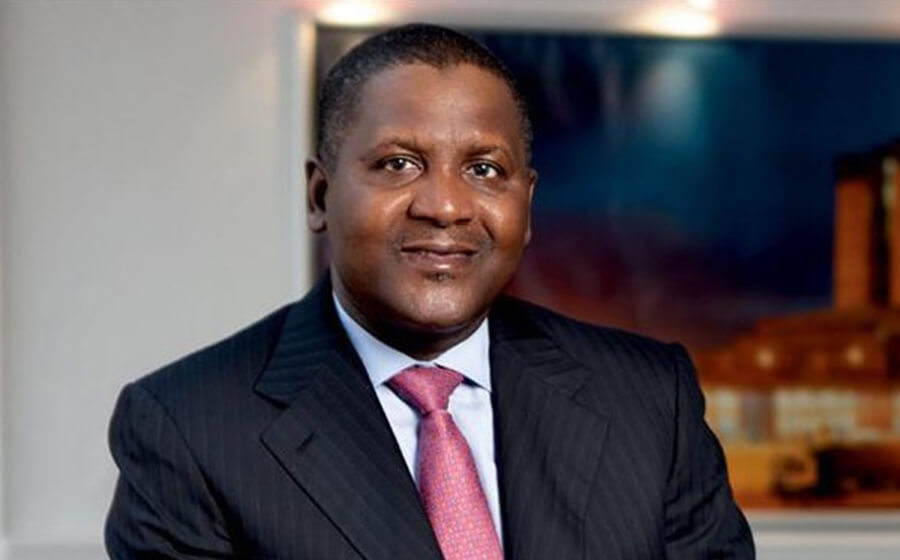Dangote Eyes Steel Production, May Stop Accessing Forex From CBN
Africa’s richest man, Aliko Dangote, has said that his companies will stop going to the Central Bank of Nigeria from forex as he eyes expanding into the steel market.
Olakunle Alake the Group Managing Director Dangote Group made the disclosure on behalf of Aliko Dangote during a panel discussion at the AFC Live: Infrastructure Solutions Summit held in Abuja.
Advertisement
The theme of the event explores current geopolitical shifts and their implications for African continent’s role in the global energy transition and the state of play in the digital sector among others.
Dangote who is the chairman of the Dangote Group will launch its $19bn 650,000 barrels per day refinery in the second quarter of 2022.
He recently commissioned his fertilizer plant, the largest in Africa in April.
Alake revealed that the group is planning to invest heavily in establishing a steel.
Advertisement
He said, “Apart from the oil and gas project that we are doing, we are also one of the key stakeholders that has support the government in terms of infrastructure tax credit scheme and we are using local banks to build that capacity across Nigeria.
“We do have something right now that we are trying to complete. I think this is the major project and that is our major focus right now. In another couple of years, we will not go to Central Bank for foreign exchange for any of our activities, because at the end of the day, it’s a double situation, you import product which means you are creating jobs outside Nigeria and you struggle to get the FX.
“You drill for oil, you export oil, you don’t refine it. That way you are just killing employment. Our focus is two things. One, we make sure we look at things that can be produced locally, we create employment that way and we create and we create value that way.
“For us, steel is one of the key areas. You recall that years back government decided that steel was major and set up Ajaokuta Steel and Delta Steel.
The Group Managing Director of the group revealed that raising the $19 billion needed for the refinery project was not so challenging.
Advertisement
Also speaking at the event, the Chairman of the African Finance Corporation, Board and the Deputy Governor (Economic Policy) of the Central Bank of Nigeria, Kingsley Obiora said that the key to unlocking funds for energy transition and climate is locked in the continent.
Obiora said, “Climate Change demands greater robustness in our buildings and infrastructure and as energy transition requires rethinking of power supplies, transportation and living.
“The key is unlocking new sources of funding both international and domestic. Be assured such capital is available. It is locked in pension funds, insurance companies, sovereign wealth funds and mutual funds. We are limited only by our ability to reduce risk for investors and provide stable, steady and competitive returns.”
He said the CBN has played a leading role in investment and resource mobilisation for the continent.
The CBN Deputy Governor said, “In fact the reason that we are all here today brought together by the African Finance Corporation is a case in point. The CBN deployed an initial $500m in investment in AFC.
“Fifteen years on, the corporation has a balance sheet of over $10bn in investments in 35 countries. Last year, the CBN together with the AFC and the Nigerian Sovereign Investment Authority under our Vice President launched the Infrastructure Corporation of Nigeria, focused on a world class infrastructure development vehicle focused on tackling Nigeria’s $100bn annual infrastructure needs.”
Advertisement
Obiora explained that natural gas should be part of Africa’s energy mix .
According to him, the continent’s infrastructure gap requires exploring every available option in raising capital from both local and foreign investors.
He said, “In addition to renewable energies, natural gas for example must be a fundamental part of Africa’s policy response to the energy deficit. Infrastructure and financing needs of the continent are getting bigger, we all have a role in raising more capital both from domestic sources and international ones by making sure that we are deploying this capital effectively and at speed to support double digit growth.”



